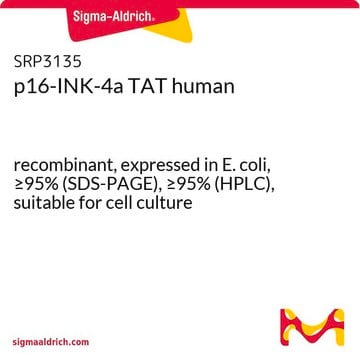おすすめの製品
形状
buffered aqueous solution
分子量
size 6519 bp
微生物選択
kanamycin
複製起点
2Micron
pUC (500 copies)
ペプチド切断
no cleavage
プロモーター
Promoter name: TEF1
Promoter activity: constitutive
Promoter type: yeast
レポーター遺伝子
none
輸送温度
ambient
保管温度
−20°C
酵母選択
uracil
詳細
This plasmid is designed for low level expression of proteins in Saccharomyces cerevisiae using the STE5 promoter. This is the weakest of the promoters that we sell for expression in yeast. The plasmid also contains a gene that is an essential component of the uracil synthesis pathway. This allows for the selection of yeast cells that are defective in this gene in media that does not contain uracil.
Promoter Expression Level: This plasmid contains the yeast scaffold protein STE5 promoter. It is the weakest promoter that we provide for expression in Saccharomyces cerevisiae.
Promoter Expression Level: This plasmid contains the yeast scaffold protein STE5 promoter. It is the weakest promoter that we provide for expression in Saccharomyces cerevisiae.
アプリケーション
Cloning in a gene: This plasmid has been designed to be compatible with a range of cloning techniques. The multiple cloning site contains a range of standard commonly used restriction sites for cloning. Using these sites genes can be inserted using standard cloning methods with DNA ligase. Other methods such as ligase independent cloning (LIC) Gibson Assembly InFusionHD or Seamless GeneArt can also be used and because all of our plasmids are based on the same backbone the same method can be used for cloning into all of our catalogue vectors.
Multiple cloning site notes: There are a few important sites within the MCS. These include the NcoI site the XbaI site and the BsgI and BseRI sites. The NcoI site contains a start codon that is immediately downstream of both a Kozak and Shine-Dalgarno ribosomal binding site. These allow for optimal positioning of genes when the start codon is placed in this location. If this is not required and you wish to use a downstream site for gene cloning you can remove the NcoI site by cleaving the plasmid with KpnI.
The XbaI site contains a stop codon. This stop codon is positioned in a specific position in relation to the BsgI and BseRI sites that are immediately downstream. When either BseRI or BsgI cleave the plasmid they produce a TA overhang from the stop codon in the XbaI site that is compatible with all of our peptide tag plasmids cut with the same sites. BseRI and BsgI sites are non-palindromic and cleave a defined number of bases away from their binding site.
Whenever we clone a gene into our multiple cloning site we always position the start and stop codon in the same positions in the MCS. If the start and ends of the genes are not compatible with NcoI and XbaI we extend the sequence to the nearest external sites but keep the start and stop codons locations consistent.
Multiple cloning site notes: There are a few important sites within the MCS. These include the NcoI site the XbaI site and the BsgI and BseRI sites. The NcoI site contains a start codon that is immediately downstream of both a Kozak and Shine-Dalgarno ribosomal binding site. These allow for optimal positioning of genes when the start codon is placed in this location. If this is not required and you wish to use a downstream site for gene cloning you can remove the NcoI site by cleaving the plasmid with KpnI.
The XbaI site contains a stop codon. This stop codon is positioned in a specific position in relation to the BsgI and BseRI sites that are immediately downstream. When either BseRI or BsgI cleave the plasmid they produce a TA overhang from the stop codon in the XbaI site that is compatible with all of our peptide tag plasmids cut with the same sites. BseRI and BsgI sites are non-palindromic and cleave a defined number of bases away from their binding site.
Whenever we clone a gene into our multiple cloning site we always position the start and stop codon in the same positions in the MCS. If the start and ends of the genes are not compatible with NcoI and XbaI we extend the sequence to the nearest external sites but keep the start and stop codons locations consistent.
シーケンス
To view sequence information for this product, please visit the product page
アナリシスノート
To view the Certificate of Analysis for this product, please visit www.oxgene.com
関連製品
製品番号
詳細
価格
保管分類コード
12 - Non Combustible Liquids
引火点(°F)
Not applicable
引火点(℃)
Not applicable
適用法令
試験研究用途を考慮した関連法令を主に挙げております。化学物質以外については、一部の情報のみ提供しています。 製品を安全かつ合法的に使用することは、使用者の義務です。最新情報により修正される場合があります。WEBの反映には時間を要することがあるため、適宜SDSをご参照ください。
Jan Code
OGS535-5UG:
試験成績書(COA)
製品のロット番号・バッチ番号を入力して、試験成績書(COA) を検索できます。ロット番号・バッチ番号は、製品ラベルに「Lot」または「Batch」に続いて記載されています。
Jin-Gyoung Jung et al.
PLoS genetics, 10(10), e1004751-e1004751 (2014-10-31)
The Notch3 signaling pathway is thought to play a critical role in cancer development, as evidenced by the Notch3 amplification and rearrangement observed in human cancers. However, the molecular mechanism by which Notch3 signaling contributes to tumorigenesis is largely unknown.
Alexander C Cerny et al.
PLoS genetics, 11(10), e1005578-e1005578 (2015-10-29)
Recycling of signaling proteins is a common phenomenon in diverse signaling pathways. In photoreceptors of Drosophila, light absorption by rhodopsin triggers a phospholipase Cβ-mediated opening of the ion channels transient receptor potential (TRP) and TRP-like (TRPL) and generates the visual
Diana Romero et al.
Carcinogenesis, 37(1), 18-29 (2015-10-28)
Dickkopf-3 (Dkk-3) is a secreted protein whose expression is downregulated in many types of cancer. Endogenous Dkk-3 is required for formation of acini in 3D cultures of prostate epithelial cells, where it inhibits transforming growth factor (TGF)-β/Smad signaling. Here, we
Geoffrey M Lynn et al.
Nature biotechnology, 33(11), 1201-1210 (2015-10-27)
The efficacy of vaccine adjuvants such as Toll-like receptor agonists (TLRa) can be improved through formulation and delivery approaches. Here, we attached small molecule TLR-7/8a to polymer scaffolds (polymer-TLR-7/8a) and evaluated how different physicochemical properties of the TLR-7/8a and polymer
ライフサイエンス、有機合成、材料科学、クロマトグラフィー、分析など、あらゆる分野の研究に経験のあるメンバーがおります。.
製品に関するお問い合わせはこちら(テクニカルサービス)






